Joy Ladin is the author of a memoir of gender transition, National Jewish Book Award finalist Through the Door of Life; Lambda Literary and Triangle Award finalist, The Soul of the Stranger: Reading God and Torah from a Transgender Perspective; and ten books of poetry, including her new collection, Shekhinah Speaks (Selva Oscura Press), National Jewish Book Award winner The Book of Anna, and Lambda Literary Award finalists Transmigration and Impersonation. Her work has been recognized with a National Endowment for the Arts Fellowship, a Fulbright Scholarship, an American Council of Learned Societies Research Fellowship, and a Hadassah Brandeis Institute Research Fellowship, among other honors.
I had the opportunity to interview Joy, which you can read below.
First of all, welcome to Geeks OUT! Could you tell us a little about yourself?
Thank you! I grew up white, lower middle class (my father was a social worker), assimilated Jewish, terrified, marginalized, annoying, and hyperverbal (in schoolyard sports, I played announcer) in the 1960s and 70s Rochester, NY. Though I knew nothing about anything, I spoke as though I were an expert on anything I talked about (this continues to be useful as a poet), particularly on Star Trek, which was having its first brief run on our black-and-white TV. When I wrote on freshly painted walls in magic marker, I was punished by not being allowed to watch Star Trek.
Though I hid my trans identity, it wasn’t safe at home when I was an adolescent, and I more or less left after graduating from high school at 16, though I continued to see my family and get financial support through college. I was very interested in math until a college calc class I took when I was a high school sophomore taught me that, unlike poetry, you couldn’t just make things up in math.
I had started writing what I thought of poetry as soon as I learned to write, took my first writing workshop in junior high school and continued straight through till I graduated as a creative writing and social sciences major from Sarah Lawrence College. Instead of going to graduate school, I decided to focus on writing poetry, supporting my habit with what was at first my only marketable skill, typing. That decision led to ten years as an administrative assistant at The State Bar of California, during which writing piles of poetry, most of which never got published, while writing memos, managing budgets, and thinking about great writers like Kafka who were also office workers.
I left to get an MFA I hoped would jump-start the career as a poet which, despite my hard work (I wrote constantly) and occasional publications, had remained a daydream. The MFA program I got into – Umass Amherst – didn’t teach me much about writing or help with my career, but it did lead me to what became my second vocation, teaching. I fell in love with teaching during the first class I taught (ironically, on “Man and Woman in Literature”) and never fell out of love with it, though illness forced me to leave the classroom a couple of years ago.
In order to become marketable, as they say, for a tenure-track job in teaching, after I finished the MFA thesis that eventually grew into my first book of poetry, Alternatives to History, I got a Ph.D. in American Literature from Princeton, which, after a few years on the market, helped me land the David and Ruth Gottesman Chair in English at Stern College for Women of Yeshiva University, the flagship school of modern Orthodox Judaism. I loved the students there, and the university’s support helped me write most of the work I’ve published. But it’s hard to mix openly trans identity with Orthodox Jewish culture, and uncomfortable to be the one and only openly trans person doing the mixing, and, over the twelve years following my gender transition, it got harder and harder to work at Yeshiva University.
Despite the discomfort, my experiences on the border of contemporary secular and traditional religious culture launched me on what became a third career as a speaker and writer about gender identity, particularly about the intersections and collisions between trans and nonbinary identities and traditional religions. Much of the non-literary work of which I’m proudest wouldn’t have been possible without what I learned – was forced to learn – by teaching in an Orthodox environment, and Yeshiva University’s support enabled me to write dozens of essays, a memoir of gender transition, a book of trans theology, and numerous books of poetry.
Unfortunately, over those very productive years, I was also getting sicker and sicker from ME/CFS, and in 2021 finally had to go on disability. These days, I’m mostly housebound, though still writing (I’ve just finished a collection of selected essays) and doing speaking events via (what else?) Zoom.
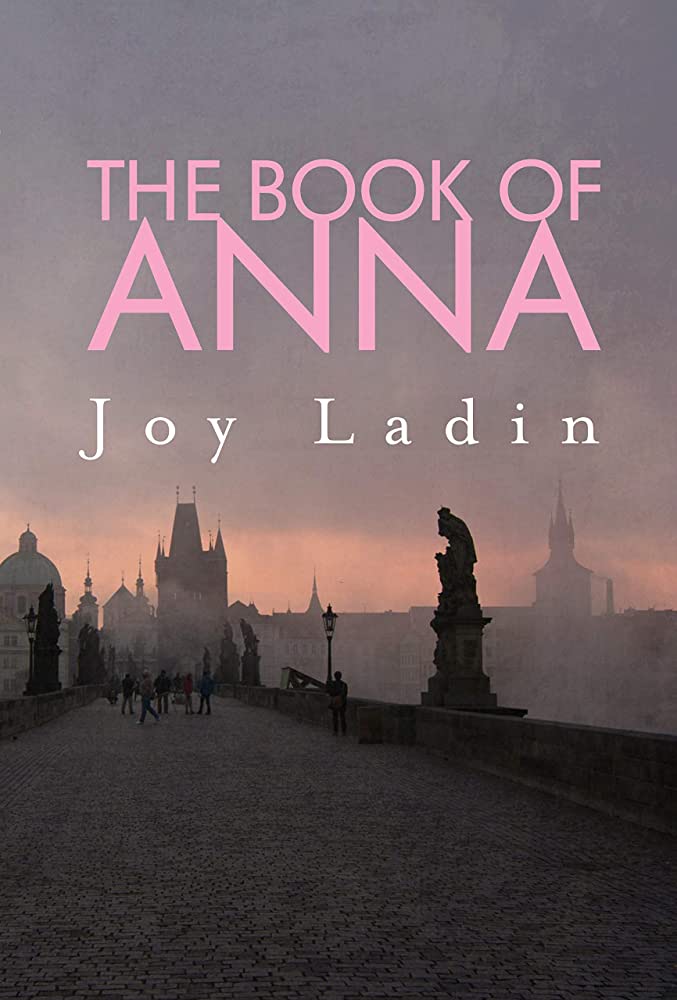
What can you tell us about your most recent book, The Soul of the Stranger: Reading God and Torah from a Transgender Perspective? What inspired this project?
Actually, my most recent book is Shekhinah Speaks, a collection of poems intended to give voice to the Shekhinah, Jewish mysticism’s name for the immanent, female aspect of the divine. But I couldn’t have written it without first having written The Soul of the Stranger, a book of intimate theology that grew out of a lifetime of thinking about and talking with God. I don’t think it’s unusual for children to have a sense of divine or other presence beyond the human, and from what others have told me that sense is often particularly keen for LGBTQ+ kids and others who, as I did, grow up feeling isolated by their differences from those around them. It wasn’t the easiest relationship – when you’re a lonely child, God is not the kind of companion you are longing for – but I don’t think I would have survived my childhood if I hadn’t felt God there with me. Without God, I wouldn’t have anyone to talk with who didn’t mistake me for the boy I was pretending to be and knew who I really was.
A lot of children have that sense of God’s presence educated or beaten out of them, or displaced by institutionalized religious ideas, worship, and community. But my family wasn’t religious, and my relationship with God has continued throughout my adult life. Though it took place outside institutionalized Judaism, my relationship with God was still connected to Jewish tradition, primarily through my independent reading of the Hebrew Bible, texts I saw as portraying God as someone who, like me, was isolated and often heartbroken because, like me, God doesn’t have a body that would enable the people God loves to see that God is there.
I didn’t start publicly talking and writing about my relationship with God until after my gender transition. At first, I did so as part of explaining how I grew up as a trans kid. But to my surprise, many people seemed as interested in the idea of having a personal relationship with God as they were in what I said about trans identity.
The Soul of the Stranger is a response to that interest, an effort to think through what I learned about God and the portrayal of God in the Bible from experiencing them from a transgender perspective – that is, experiencing them in the context and through the lens of my experiences as a person who doesn’t fit binary gender categories. I wanted the book to demonstrate that, contrary to what many think, trans experience is not opposed to religious experience or even religious tradition, that, as in my life, each could sustain and illuminate the other. I hoped it would help bridge the often bitter gulf between trans and nonbinary and religious communities, help trans and nonbinary people see themselves as inherently entitled to religious traditions, and help people inside and outside religious communities recognize and explore the possibility of having their own relationships with God.
Speaking as a queer Jewish person myself, I know there’s often been some tension between the queer community and the concept of religion. What are your thoughts on this and how would you describe your relationship with Judaism?
I think the opposition between religious traditions and queer identities is too often taken as a given by people in both kinds of communities. There are and have always been deeply religious LGBTQ+ people who adhere to traditional forms of Judaism, Christianity, and Islam, and I have heard many of those people tell me that they feel marginalized on both sides of the divide: marginalized by LGBTQ+ identity in their religious communities, and by their religious identification in queer circles, sometimes so much that they feel they have to “closet” their religious affinities.
The fact that there are so many people like this shows us that there is no necessary opposition between being traditionally religious and LGBTQ+ identities, that those identities are not, as we often assume, inherently secular and opposed to or incompatible with being traditionally religious. So where does this assumption come from?
One source is obviously the explicitly phobic elements in religious traditions and their expression and magnification in some contemporary religious communities – elements that have harmed generations of LGBTQ+ people, and driven many of us to reject religion and embrace secularism. But, at least in terms of Judaism, these phobic elements are fragmentary, intermittent, go in and out of mainstream fashion, and center on male homosexuality rather than general opposition to sexual or gender difference. (There’s barely enough awareness of lesbians in Jewish tradition to generate prohibitions, much less hatred.) When I came out as trans at Yeshiva University, there was no general anti-trans discourse in Orthodox Judaism (there is more now), no tradition of hating on trans people. That discourse grew in response to the increasing visibility of trans and other queer people, but, except for homophobia, this is not traditional or central to Jewish tradition.
Another thing that feeds this assumption is the historical fact that our language of sexual and gender difference is secular, a mishmash developed first by scientists (more or less) interested in describing behaviors and biological and psychological types, and more recently by activists interested in asserting and defending individual identities and rights. The assertion of individual identity as the most important aspect of our humanity is indeed a secular idea, a response to both democracy and capitalism, and it stands in opposition (as the early standard-bearers of Enlightenment knew) to not only traditional religions but to traditional modes of community, which tend to define people first in terms of their roles and relations to others and secondarily in terms of individuality.
But even in those kinds of traditional communities, people are recognized as individuals as well as who they are to others, and even in LGBTQ+ communities, people are recognized in terms of relations to others as well as individual identity. While secular and traditional societies ascribe different priorities to each, both are necessary aspects of both community and humanity. In other words, they are complementary, not contradictory – which makes queer discourses that value only individual identity limiting and damaging in ways that are analogues to the limitations and damage caused by traditional religious discourses that value only whether we fit assigned roles and categories.
Because I grew up in isolation as a trans-Jew, I managed to avoid all of this growing up. Judaism was mine, I was told, because I was born Jewish, and in the absence of teachers who promoted a strong idea of what Judaism was, I made up my own version, a version centered, as I talk about in The Soul of the Stranger, on a relationship with God and reading of the Torah based on my trans experiences of not fitting human categories. I never accepted others’ versions of Judaism, though I have learned a lot from them and participated in them, and so I never experienced a tension between being trans or queer and being a religious (though non-Orthodox) Jew. It can be lonely to have a Judaism made for one – I have never fully felt at home in any Jewish community, and Jewish community central to much of Judaism. But I have accepted that loneliness as the price for practicing a Judaism that fits and embraces both my trans identity and my idiosyncratic relationship with God.
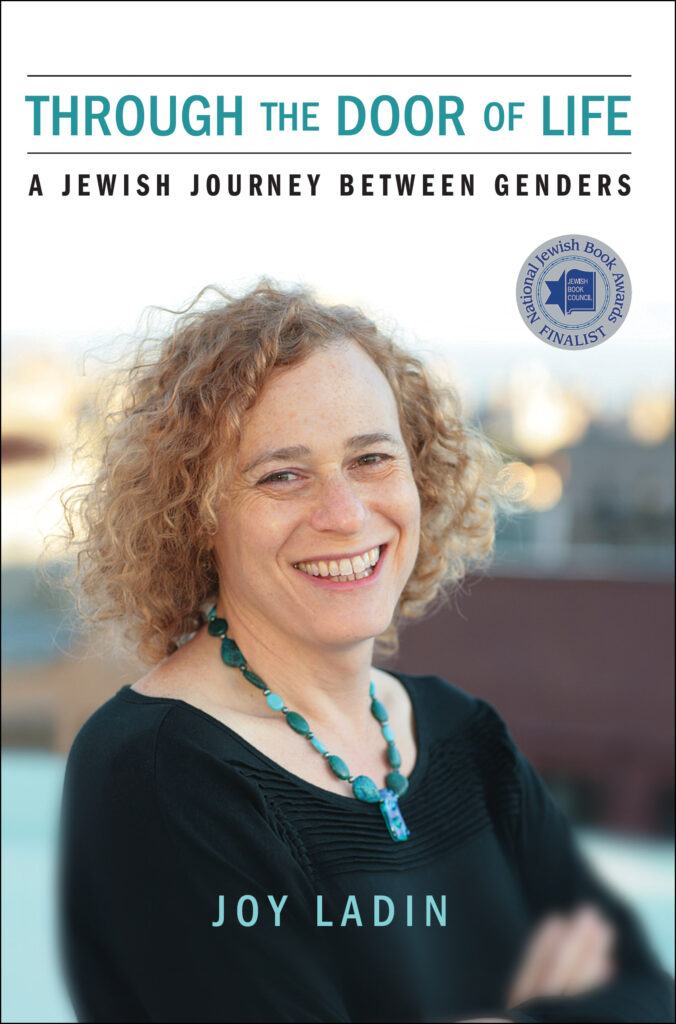
What inspired you to get into writing? Were there any favorite writers or stories that sparked your own love and interest in storytelling?
I don’t know why I started writing poetry – I just did, even though our family didn’t read or have books of poetry around. Most of my non-school reading was science fiction, one of the few things I could really share with my father, who grew up idolizing Isaac Asimov, a writer who came from a similar background. There were boxes of SF magazines from 40s and 50s in a room in our basement, and I read my way through them, as well as experimenting with then-up-and-coming writers like Harlan Ellison, who I adored for his snarkiness, his anguish, and his overwriting, qualities I shared.
But aside from a failed (ie, unpublished) fantasy novel, I have always seen poetry, mostly lyric poetry, as the focus of my reading and writing life. The poets in my personal pantheon – the ones who keep teaching me what great poetry is and what poetry can be – include Emily Dickinson, Cesar Vallejo, Pablo Neruda, Basho, and Issa, among others. I have written some narrative poems – it’s something that interests me and that I can at least sometimes do, and my most ambitious literary work is The Book of Anna, a sort of novel made out of the diary entries and poems of a fictional concentration camp survivor trying to make sense of what she has survived. But my interest in storytelling was truly kindled after my gender transition when publicity in the New York Post led to my giving scores of talks about trans identity. At first, most of what I knew about trans identity was my own life story. As I told stories of my growing up hiding my identity, gender transition in middle age, and then creating a life as myself in different ways to different audiences, I learned to love storytelling, to see it as a way of not only communicating but of understanding myself and the profound questions of gender and identity that have shaped me. That love deepened as I wrote my memoir of gender transition, and though I doubt I will ever write prose fiction again, I expect that storytelling will remain central to my teaching, my thinking, and even my spiritual life.
As a poet and non-fiction writer, how would you describe your creative process within both mediums?
For me, poetry (at least good poetry) either starts somewhere other than my conscious intentions or quickly grows beyond them. A good example of the latter is Shekhinah Speaks, which started with a conscious intention to write in the voice of the Shekhinah, but only became something worth doing when I recognized that what I really wanted was not to masquerade as a divine being, but put words together in ways that would enable divinity to speak through them. The Book of Anna was even less conscious in origin – it began when I heard a voice in my head suggesting I write about Anna, a fictional character I had not yet imagined. (I don’t understand that either.) But most of my poems start just by throwing words on the page and seeing what happens – which is probably why most of my poems end up falling short of poetry. However, when the words I’ve thrown down engage my unconscious imagination and feel like they are coming from or pointing beyond me, that’s when I know a draft might grow into real poetry.
All my non-fiction prose, even my academic writing, also has an element of unconscious impulse and imagination, and the best stuff always goes beyond what I think I know, but for me, that kind of writing always starts with conscious intention. The Soul of the Stranger grew out of my desire to develop a Jewish trans theology based on Biblical texts and informed by my own experience; my memoir of transition, Through the Door of Life, started with the intention of articulating aspects of gender transition that, as far as I could tell, no one had yet written about. Both of them grew in ways I couldn’t have imagined when I had those intentions, but both of them remained driven by those original conscious intentions in ways that isn’t true of my poetry.
What are some of your favorite elements of writing/ research? What are some of the most challenging?
Even in my most conscious prose, the part of writing I have always loved most is thinking on paper, free-writing, getting high on the feeling of words and sentences coming together and of new meaning finding its way into the world through me. But I love the feeling of discovery and revelation at every stage in the writing process, including the often difficult process of revision – and I love when I discover something by editing or cutting a sentence. Even though it’s often hard work, and even though that work often leads to writing I end up cutting or abandoning, I love writing. I never want to live without it.
What’s a question you haven’t been asked yet but wish you were asked (as well as the answer to that question)?
I’m not sure what the question would be (good thing I’m not on Jeopardy!), but one of the big shifts in my life as an openly trans – and thus openly queer – person was from seeing myself as a deviation or an exception to humanity, as a problem to be accommodated or explained, to seeing them as simply ways of being human. Rather than assuming, as I did most of my life, that the ways I am different were inherently marginalizing and problematic, I realized that they not only need no justification or defense but that they are sources of insight and wisdom, that they offer me perspective on the common dynamics and challenges of being human. In other words, I started thinking and talking and writing about how what makes me seem different can enable those who see me that way to understand aspects of themselves and their own lives. That shifts the incentives for inclusion of those who seem different. In addition, being something we owe people who have been excluded or marginalized, inclusion becomes a way of expanding our understanding of our own humanity. This shift, I’ve found, reduces resistance to inclusion (self-interest is a more reliable motivator than high ideals), and makes it more likely that people who are seen as different are listened to and valued rather than simply tolerated or treated as virtue-signifying tokens.
What advice might you have to give for aspiring writers?
I don’t know how good a source I am for that kind of advice, since most of my life I received little recognition, and even now, after publishing 12 books, rarely get reviewed or receive mainstream attention. But here are some things I’ve learned that has helped me.
I don’t need anyone else’s permission or recognition to be a writer – being a writer just (just!) means making writing central to my life. To do that, I need to write what delights and matters and is true to me. I also have to do the hard work of revising my writing so that it delights and matters and is true not only to me but to others. I have to simultaneously be tirelessly committed to the work of writing, and compassionate to myself when my human vulnerability (or just the need to have a life!) get in the way of it. In my life as a writer, I need to strive for greatness (by which I mean, strive for writing that is bigger, better, truer, more honest, smarter, wiser, more insightful than I am) rather than praise or recognition, because when I do that, the work is worth doing no matter what the rest of the world makes of what I write.
Most importantly: always make writing sure that in addition to working hard, you write for pleasure, that you do writing that just feels good to you, because it’s the pleasure of writing that gets us through the sometimes brutal cycles of revision and rejection and so on.
Besides your work, what are some things you would want readers to know about you?
I don’t know how much is interesting about me outside my work. That’s especially true now that my life is circumscribed by illness and disability, but I have always tried to put the best of myself into my writing, and the other aspects of life I value most – loving and being loved, friendship, conversation, reading poetry, trying to be a better, more curious, more understanding, more generous, more grateful person – are pretty common.
But I do want readers to know that even though, as someone who grew up in the shadow of the Holocaust and the cold war nuclear threat and who obliviously contributed to the cascading catastrophes of climate change, I am afraid of and for humanity, I love our species. I believe that we can learn to stop destroying ourselves and one another, and that our best is still to come.
Finally, what LGBTQ+ books/authors would you recommend to the readers of Geeks OUT?
I’m going to leave out the usual (and great) suspects like Audre Lorde, Adrienne Rich and Allen Ginsberg, and recommend a couple of less-read authors I admire. In poetry, I strongly recommend the now-neglected W.H. Auden, as well as contemporary poets such as Trace Peterson (and check out her magazine EOAGH for great LGBTQ+ writing), Cam Awkward-Rich, Taylor Johnson, and Chen Chen. In terms of academic writing, I’m a big fan of Talia Bettcher‘s well-thought-out and clearly written philosophical examinations of trans identity and the issues surrounding it. Max Strassfeld‘s work on trans-Talmud is everything I think public scholarship should be, and Finn Enke is a less-known but wonderfully thoughtful and reader-writer on trans history.

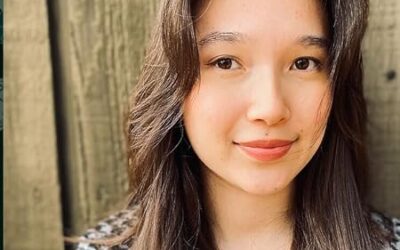
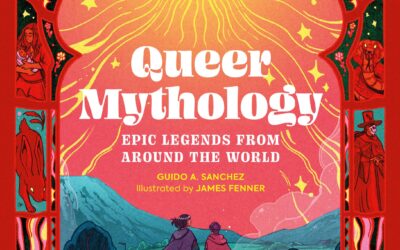
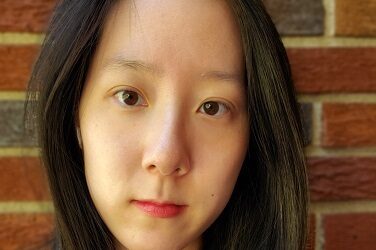
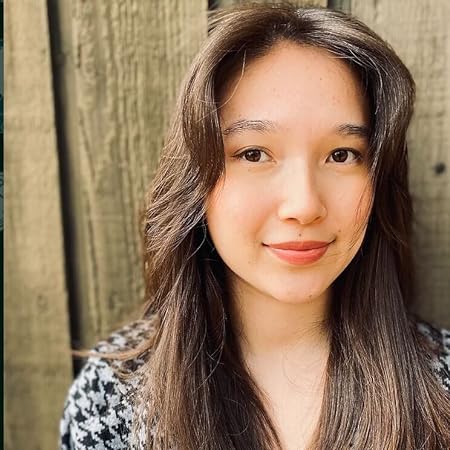
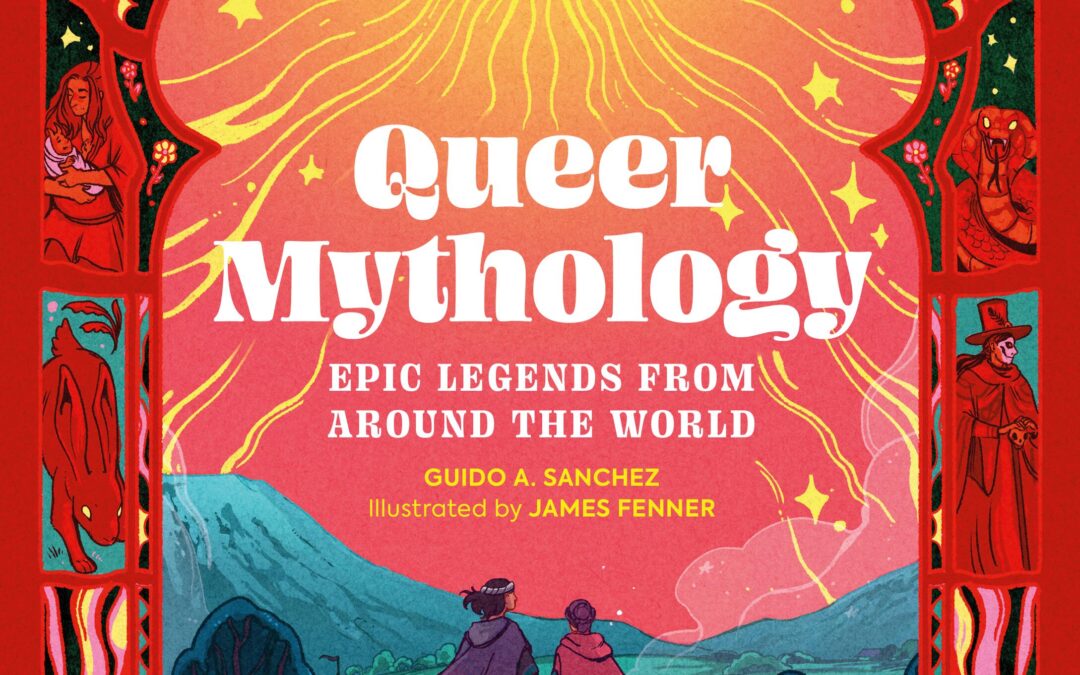
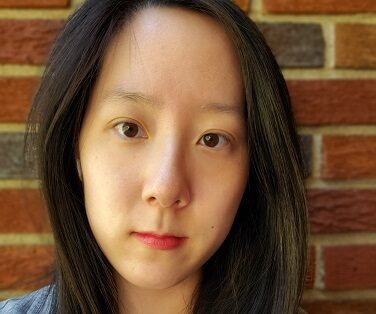
0 Comments